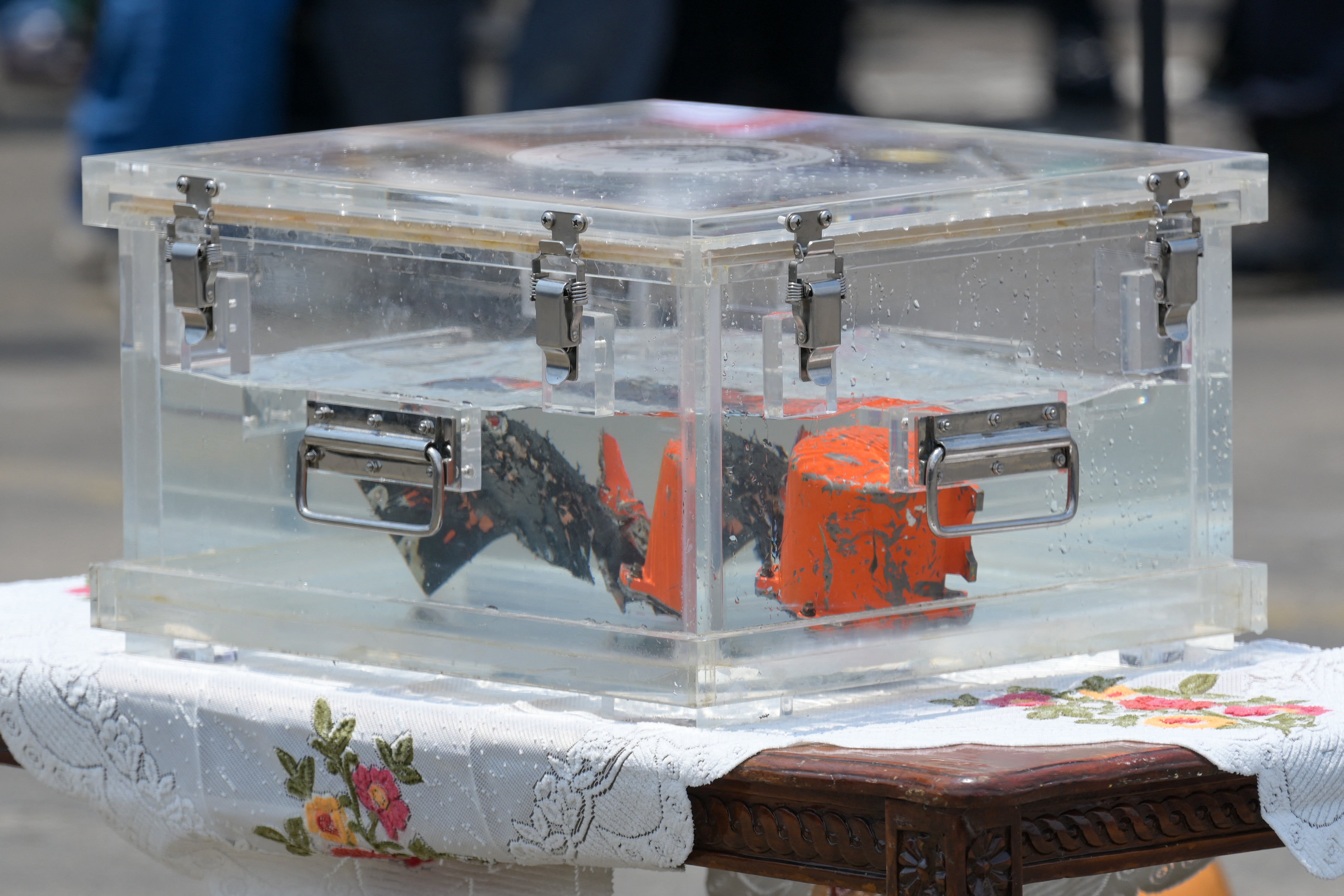Divers recover missing cockpit voice recorder from crashed Indonesia passenger jet
The cockpit recorder was found near where the flight data recorder was recovered three days after the crash

Indonesian navy divers have recovered the missing cockpit voice recorder from a Sriwijaya Air jet that crashed into the Java Sea in January.
If the recorder is not damaged, it may be able to help investigators understand the actions taken by the pilots before the accident. Officials said it could take them up to a week to be able to listen to the recording.
The Boeing 737-500 crashed shortly after take off from Jakarta on 9 January, killing all 62 people on board. Navy divers had recovered the flight data recorder from the jet three days after the accident.
Transportation minister Budi Karya Sumadi said the cockpit recorder was also found near where the flight data recorder was recovered. It was buried under 1 metre of mud.
Divers had to remove debris and carry out “desludging” operations to reach the voice recorder, said rear admiral Abdul Rasyid Kacong, the navy’s western region fleet commander, according to AP.
Read more:
- WHO chief calls for deeper probe into lab leak Covid origin theory
- Huge crowds seen at Holi despite ‘second wave’ of Covid
- Myanmar protester death toll tops 500 as ‘garbage’ protests launched
- China calls Canada America’s ‘running dog’ as tension grows
- Nightclub manager who raped unconscious woman sentenced to jail and caning in Singapore
The recorder has been given to the National Transportation Safety Committee which is overseeing the investigation into the crash.
Officials said they had planned to abandon the search operation on Wednesday if they hadn’t found the recorder by then. “There’s a mud sucker that works like a vacuum cleaner. We extracted the mud down to one meter deep. Last night, when it was the last night of the search, we found it,” the committee’s chief Soerjanto Tjahjono was quoted as saying byThe New York Times.
A preliminary report from the National Transportation Safety Committee last month said that a malfunctioning automatic throttle may have caused the pilots to lose control. It didn’t conclude the exact cause of the crash.
The lead investigator said at the time that the left engine’s throttle lever had moved backward on its own while autopilot was engaged, reducing the power output of that engine just before the jet plunged into the sea, according to AP.
The Boeing 737-500 was out of service for almost nine months last year due to travel restrictions related to Covid-19. It only began commercial flights in December after inspections.
Join our commenting forum
Join thought-provoking conversations, follow other Independent readers and see their replies
Comments
Bookmark popover
Removed from bookmarks